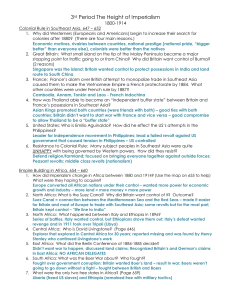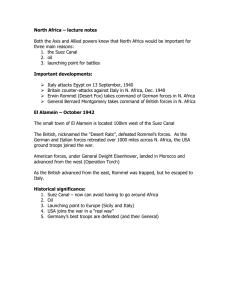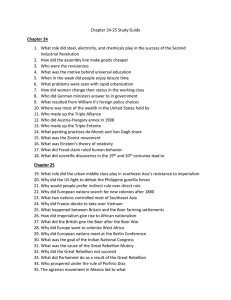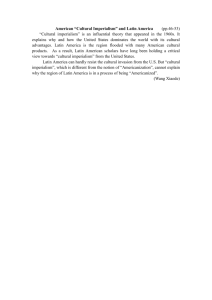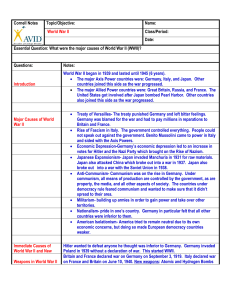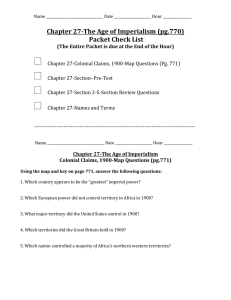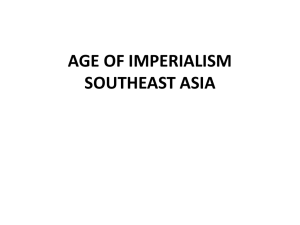7th Period Imperialism
advertisement
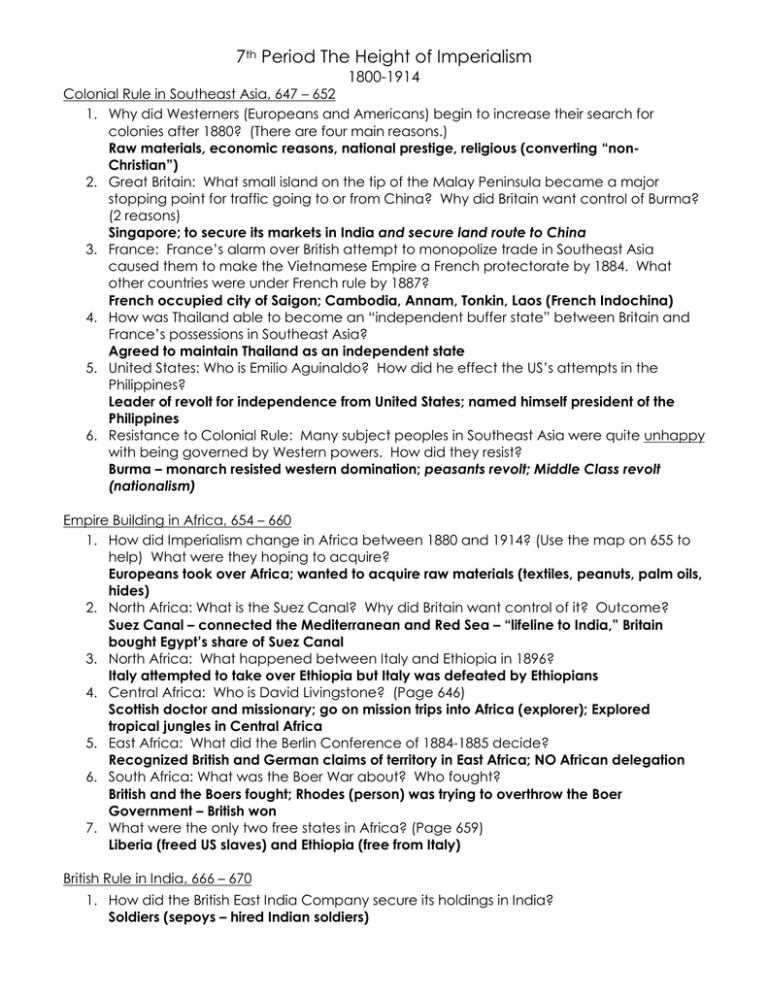
7th Period The Height of Imperialism 1800-1914 Colonial Rule in Southeast Asia, 647 – 652 1. Why did Westerners (Europeans and Americans) begin to increase their search for colonies after 1880? (There are four main reasons.) Raw materials, economic reasons, national prestige, religious (converting “nonChristian”) 2. Great Britain: What small island on the tip of the Malay Peninsula became a major stopping point for traffic going to or from China? Why did Britain want control of Burma? (2 reasons) Singapore; to secure its markets in India and secure land route to China 3. France: France’s alarm over British attempt to monopolize trade in Southeast Asia caused them to make the Vietnamese Empire a French protectorate by 1884. What other countries were under French rule by 1887? French occupied city of Saigon; Cambodia, Annam, Tonkin, Laos (French Indochina) 4. How was Thailand able to become an “independent buffer state” between Britain and France’s possessions in Southeast Asia? Agreed to maintain Thailand as an independent state 5. United States: Who is Emilio Aguinaldo? How did he effect the US’s attempts in the Philippines? Leader of revolt for independence from United States; named himself president of the Philippines 6. Resistance to Colonial Rule: Many subject peoples in Southeast Asia were quite unhappy with being governed by Western powers. How did they resist? Burma – monarch resisted western domination; peasants revolt; Middle Class revolt (nationalism) Empire Building in Africa, 654 – 660 1. How did Imperialism change in Africa between 1880 and 1914? (Use the map on 655 to help) What were they hoping to acquire? Europeans took over Africa; wanted to acquire raw materials (textiles, peanuts, palm oils, hides) 2. North Africa: What is the Suez Canal? Why did Britain want control of it? Outcome? Suez Canal – connected the Mediterranean and Red Sea – “lifeline to India,” Britain bought Egypt’s share of Suez Canal 3. North Africa: What happened between Italy and Ethiopia in 1896? Italy attempted to take over Ethiopia but Italy was defeated by Ethiopians 4. Central Africa: Who is David Livingstone? (Page 646) Scottish doctor and missionary; go on mission trips into Africa (explorer); Explored tropical jungles in Central Africa 5. East Africa: What did the Berlin Conference of 1884-1885 decide? Recognized British and German claims of territory in East Africa; NO African delegation 6. South Africa: What was the Boer War about? Who fought? British and the Boers fought; Rhodes (person) was trying to overthrow the Boer Government – British won 7. What were the only two free states in Africa? (Page 659) Liberia (freed US slaves) and Ethiopia (free from Italy) British Rule in India, 666 – 670 1. How did the British East India Company secure its holdings in India? Soldiers (sepoys – hired Indian soldiers) 7th Period The Height of Imperialism 1800-1914 2. Why did the Indians (people from India, not Native Americans) revolt against the British in 1857? What was the outcome of the revolt? Rumors that British issued bullets greased with cow and pig fat – British took over India 3. What benefits came from British rule in India? (4 benefits) Order and stability; honest and efficient government; new school system; new technology 4. What was the greatest cost of the British rule in India? (4 costs) Destroyed local Industry; economic status was bad; 5. What were two goals of Mohandas Gandhi? Nonviolent independent movement; improve standards of the poor Nation Building in Latin America, 671 – 677 1. Which group of Latin American citizens was especially influenced by revolutionary ideas? Why? Answer 2. Who is Miguel Hidalgo? What did he do on September 16, 1810? Answer 3. Revolts in South America: Answer 4. What was the Monroe Doctrine? Answer 5. Caudillos were the new leaders of Latin American and used military force to keep new nation states together. Who was Antonio Lopez de Santa Anna? Why is he important? Answer 6. What is the Panama Canal? How did America receive this? Why did they want it? Answer 7. How did Latin American become economically prosperous after 1870? Answer
